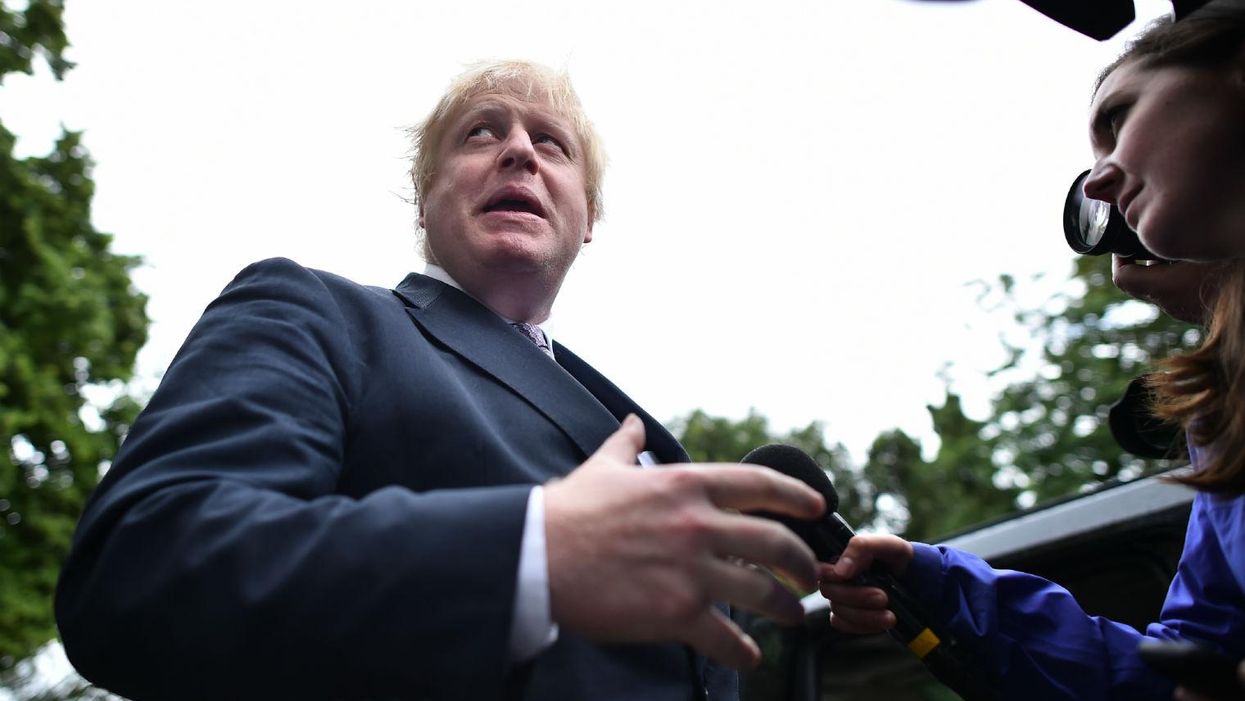News
Joe Vesey-Byrne
Jun 28, 2016

Picture: BEN STANSALL/AFP/Getty Images
David Cameron has ruled out a second referendum. While many Remain supporters - including millions who have signed a petition - will be disappointed by this news, many are still scrabbling for possible loopholes that will undo the decision to leave the EU.
Here are nine reasons
1. Leave has no plan
Sky News' Faisal Islam quoted a Leave campaigner who admitted they had no plan for Brexit, and even said that Downing Street should have been the ones to plan.
2. Lib Dem membership is surging
Following the result the Liberal Democrats announced they would stand on a platform of halting Brexit. In response to this pledge, over 5,000 people have signed up as members of the party.
This could be the beginning of a comeback for the much maligned party, and Labour's turmoil has provided a window for a pro-European opposition party in parliament beyond the SNP.
3. The Norway and Iceland models
During David Cameron's statement to the House of Commons today, the former chancellor Kenneth Clarke MP asked if David Cameron would consider joining the European Economic Area, which as Clarke described:
Was set up for countries like Norway and Iceland where the great bulk of politicians wished to join the European Union but could not get past the ridiculous hurdle of a referendum in order to get there.
This essentially suggests we could join the EU in all but name. While this might not happen until a new government is formed, it is certainly an option favourable to some Brexiteers as well as Remainers.
4. The Civil Service
In his statement to the Commons on Monday, the prime minister announced the government would set up a unit "at the heart of government" to plan the renegotiation. It will be staffed by civil servants, the senior members of which are generally anti-Brexit. They're involvement will likely slow down any Brexit-eager incoming prime minister, regardless of the national mood.
5. This has happened before
The Financial Times has pointed out Denmark in 1992 and the Republic of Ireland in 2001 rejected EU treaty changes. It produced EU concessions and a second referendum which kept membership. Perhaps those Leave protest voters are cannier than the the rest.
6. The majority of MPs supported Remain
David Lammy MP has suggested parliamentarians ignore the referendum.
Technically, they could. Or else they could water down the definition of "Leave", which is something the Leave campaign already did the morning after they'd won the referendum.
7. Boris Johnson
In the days since the referendum result Boris Johnson has distanced himself from much of the rhetoric of the Leave campaign. He's disavowed many of the campaign's promises, he's been exposed as a fake eurosceptic, and on Monday he said that Brexit voters needed to 'build bridges' with the 48 per cent who voted Remain. Speaking on Monday Johnson said:
We who are part of this narrow majority must do everything we can to reassure the Remainers.
8. A snap election
When a new Tory Leader is chosen, the sooner an election will be called. While this may seem disheartening, the sooner there is an election the more likely it will be a proxy-second referendum. The "In" or "Out" stance of party leaders will play a huge role in the debate, and its unlikely that the Liberal Democrats would be the only party with a leader who supports remaining in the EU.
9. Theresa May
The home secretary has overtaken Boris Johnson in a poll on likely leaders of the Conservative Party and she was part of the Remain campaign. While she's been accused of avoiding the polarised campaign and keeping her head down, she nevertheless has supported many statist measures associated with the EU, for instance the European Arrest Warrant.
Top 100
The Conversation (0)













